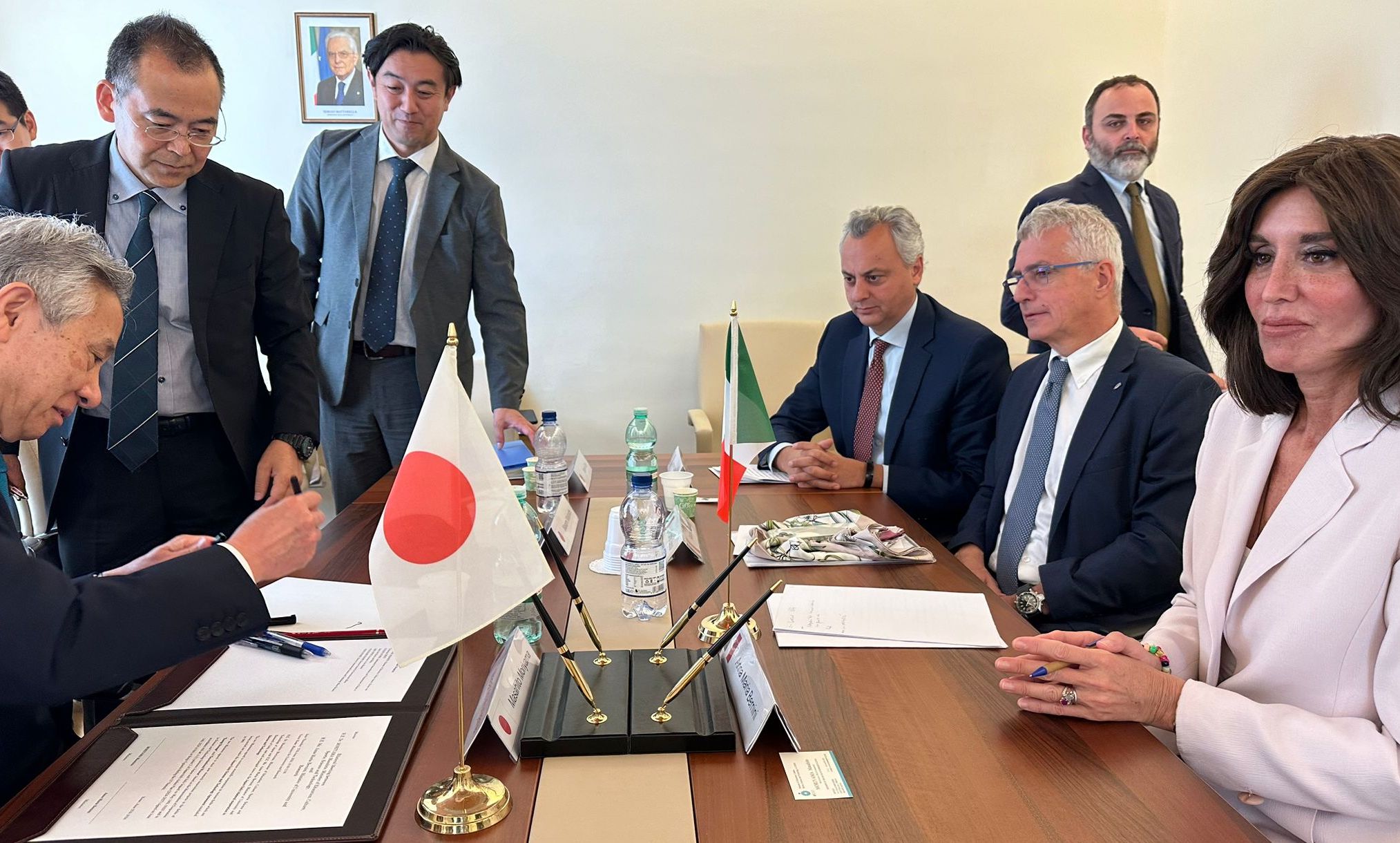
During a meeting on scientific and technological cooperation between Italy and Japan, Italian Minister of University and Research Anna Maria Bernini and Japanese Minister of Education, Culture, Sports, Science and Technology Masahito Moriyama announced the launch of an important research project on gravitational waves. The goal is to develop cutting-edge technologies for the Einstein Telescope, the future third-generation gravitational wave observatory that will be built in Europe and Italy is candidate to host in Sardinia, and for the Japanese KAGRA experiment, which is part of the current network of gravitational wave detectors, alongside LIGO (in the United States) and Virgo (in Europe). The agreement is included in the bilateral action plan on priority areas of cooperation for the period 2024-2027, signed by Italian Prime Minister Giorgia Meloni and Japanese Prime Minister Fumio Kishida on the sidelines of the G7 in Puglia.
The new research project, which will be led by the National Institute for Nuclear Physics (INFN) in collaboration with the Institute of Cosmic Ray Research at the University of Tokyo, builds on an already active collaboration between the INFN and the Japanese university, particularly in the study of neutrino properties and the search for new physics, with experiments in progress both in Italy and Japan. In this case, the collaboration will mainly focus on the development of cryogenic technologies necessary to cool the gravitational wave detector's mirrors to extremely low temperatures. KAGRA, among the currently ongoing experiments, is the only one that is underground and that uses cryogenic techniques for mirror cooling: two features that it shares with the future Einstein Telescope. The experience of Japanese researchers in studying effective cryogenic solutions for an underground infrastructure, refined in recent years, will therefore be very valuable for the ET scientific community, which will need even more advanced technologies to achieve the planned sensitivity (over 10 times greater than that of current observatories). At the same time, the research project will allow for the exchange of ideas, knowledge, and technological developments that can also be useful to the KAGRA collaboration itself, which in the coming years will aim to increase the experiment's sensitivity. The activities will start in 2024 and will last three years, with the aim of making the collaboration even stronger and continuing in the future.
In parallel with the gravitational wave project, the two countries have also launched a second research project (with similar funding) led by the National Research Council (CNR) on the topic of energy storage.




